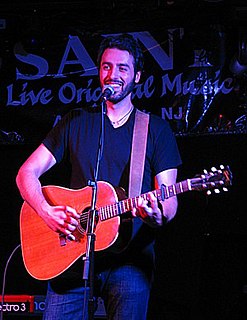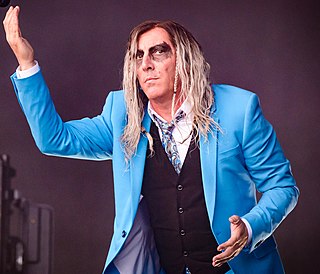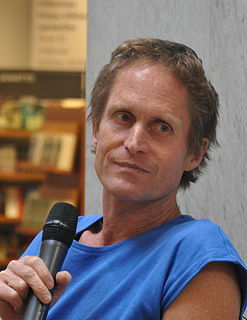A Quote by Richard Meltzer
I mean, what's thematic? How to put it? Going back to, like, 1980, when I started writing poetry. Language itself became an issue. I'd even think about font as an aspect of text, you know, how something looks on a page. A lot of this is the product of a very solitary existence, it's like, language, I mean, you know. A lot of time spent alone in the creation of all of this stuff.
Related Quotes
I realized Michael was right. I mean, I am always writing in this journal. And I do compose a lot of poetry, and write a lot of notes and emails and stuff. I mean, I feel like I am always writing. I do it so much, I never even thought about it as a talent. It's just something I do all the time, like breathing.
There's so many mysteries related to how flies are able to make their way through the world. I'd certainly like to know a lot more about how their brain works. I'd certainly like to know a lot more about just how they're put together. I mean, these animals are basically, topologically, spheres. They don't have bones as we do, of course.
Getting signed shouldn't be the point. I made that mistake early on and I think a lot of people do. It's not something you should rush into. I think I'm actually lucky that when I went to visit labels when I was 20 years old and played and they thought I wasn't ready, it was probably a good thing because I wasn't ready. I didn't know what I was getting intoat the time. I mean, you never know exactly what you're getting into. There's a lot of stuff that's going on right now that's new to me but there's also a lot that I'm lucky to know how to handle.
There is all this stuff about how sensitive poets are and how in touch with feelings, etc. they are, but really all we care about is language. At least in the initial stages of the process of writing the poem, though later other things start to come in, and a really good poem usually needs something more than just an interest in the material of language to mean anything to a reader.
To put things back into perspective, back when we as people were struggling to survive through winters, or even through the night, I feel like there's a lot of whining about whether or not you use Asian or the words Asian or Oriental, and how it's going to offend somebody, I mean give me - I mean, just shut up.
I think a lot of the writing, you know, I write is just kind of like that where, you know. I write exactly how I'm feeling sometimes, and hardships that I'm going through. But I always end up, like the choruses are like, "God, You are good. God, you're faithful. You know, I know You understand, You're right here by my side." All these different things. And I just say very personal experiences that I've been through. I mean, it's not always detrimental thing.
I feel like it's so, sort of representative of a generation. I mean everything that they talk about in the books are things that I get. Even like a lot of the Canadian references because I've worked in Canada a lot, so I totally know Sloan and I know, you know, all this stuff, and meeting Chris Murphy was really cool, and yeah, everything.
I love to learn, and I started doing a lot of studying of Spanish-style music and really started getting into it and how it is just a completely different form of guitar playing. It is just like if you started speaking in a different language like Japanese or something. It is something that you have to study and work at a lot.
We know how to think. We know how to laugh. We know we're going to die, which gives us a lot to think about, and we have a need for, what I would call, "the transcendent" or "the numinous" or even "the ecstatic" that comes out in love and music, poetry, and landscape. I wouldn't trust anyone who didn't respond to things of that sort.
There is something false in this search for a purely feminine writing style. Language, such as it is, is inherited from a masculine society, and it contains many male prejudices. We must rid language of all that. Still, a language is not something created artificially; the proletariat can't use a different language from the bourgeoisie, even if they use it differently, even if from time to time they invent something, technical words or even a kind of worker's slang, which can be very beautiful and very rich. Women can do that as well, enrich their language, clean it up.
I don't feel like I have a lot to offer in terms of an authoritative voice on a lot of political issue. I don't know how to fix the economy, or how to increase the number of jobs. That is not where I spent my life and thought and meditation. I guess I would like to think that the topics that I am discussing - the Gospel, the forgiveness of sins and the defeat of death - goes up river to all problem.
When we say 'time', I believe we mean at least two things. We mean changes. And we mean something unchangeable. We mean something that moves . but against an unmoving background. And vice versa.Animals can sense changes. But consciousness of time involves the double sense of constancy and change. Which can only be attributed to those who give expression to it. And that can only be done through language, and only man has language.The perception of time and language are inextricably bound up with one another.
I think there's this great disconnect between youth culture and politics, which is a product of how our capitalist system works. I mean, a lot of the kids I know are really politically involved. They really care about politics. I think we're going to have an incredible impact on how politics end up shaking this country.





































